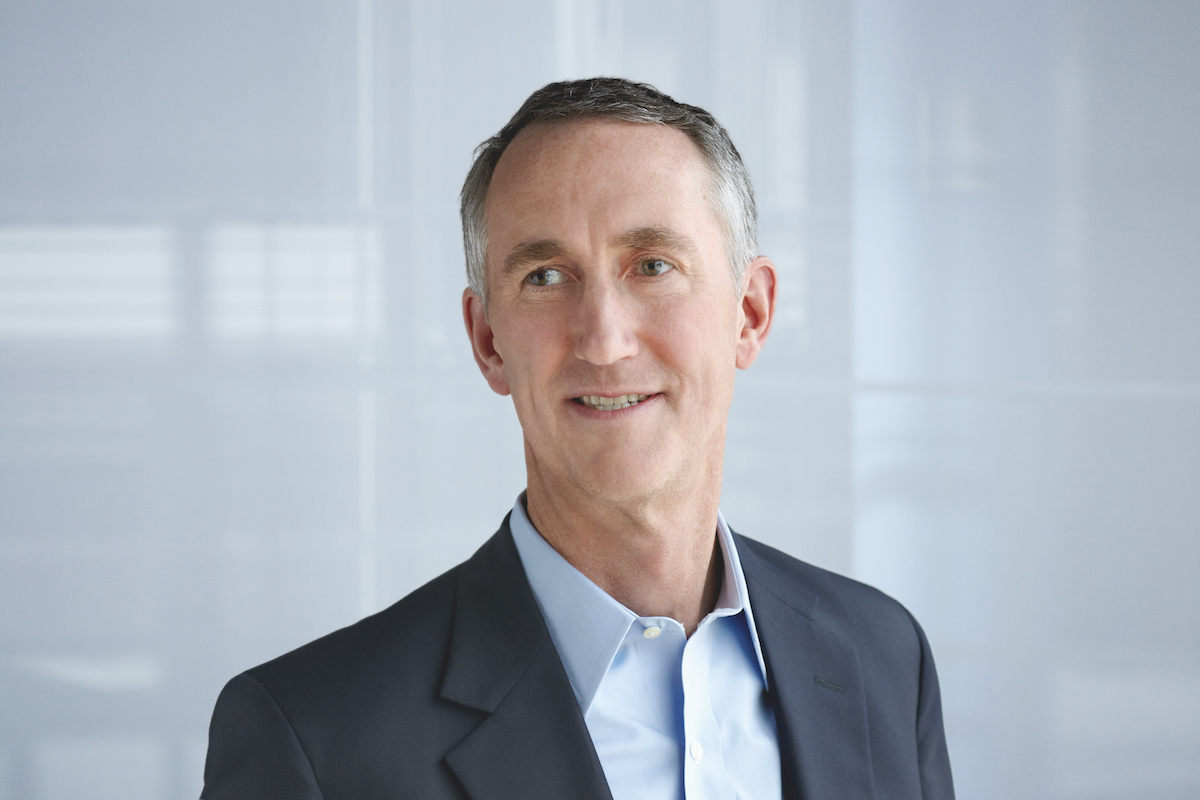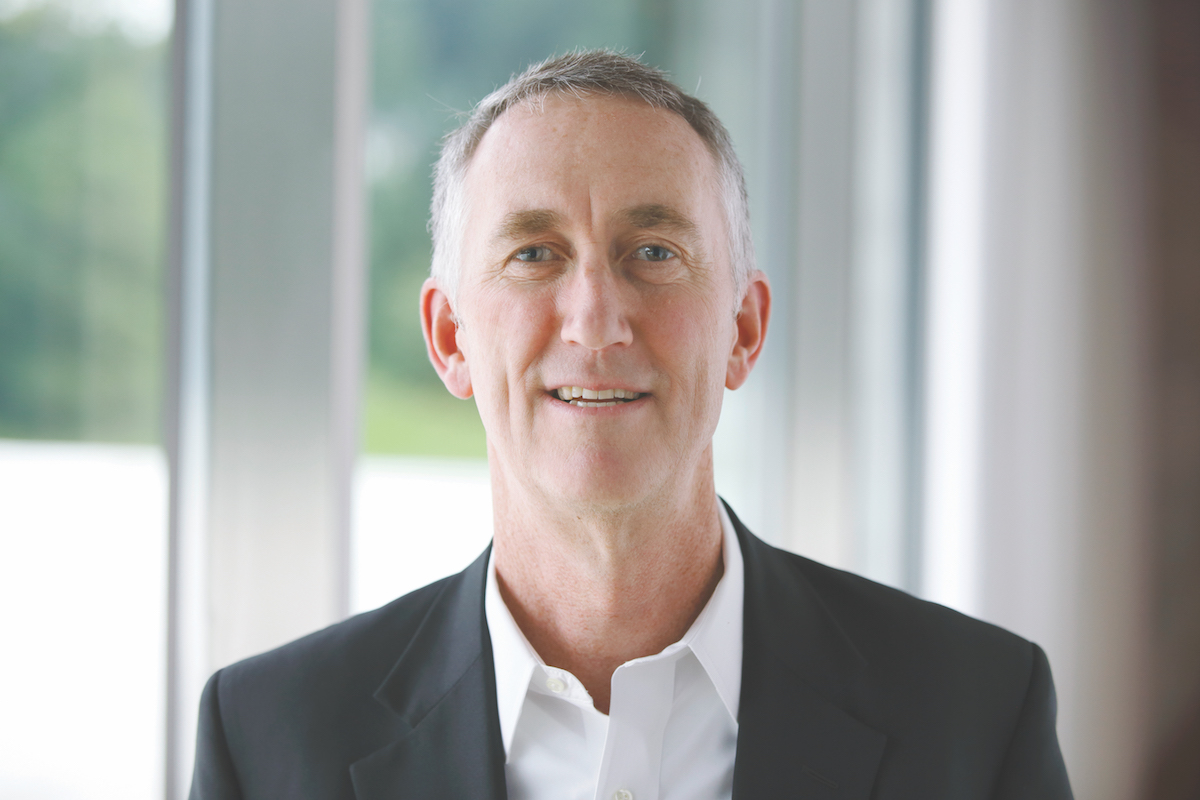It could be argued that no-one knows the importance of innovation more than the team working at Roche Pharmaceuticals. As a company that is at the forefront of fighting cancer and other diseases, its innovations in medicine and patient care dramatically benefit the lives of millions of people. In 2016, the Roche Group, the world’s largest biotech company, invested almost CHF10 billion in R&D and employed more than 94,000 people around the world.
Understandably, working for a company with the mission to develop innovative medicines and healthcare approaches for people in need is hugely rewarding. And perhaps this is why the CEO of Roche Pharmaceuticals, Daniel O’Day, has been with the Roche Group for three decades.
Daniel joined the company in 1987 after graduating with a biology degree. He held several senior roles in the company’s Pharma and Diagnostics arms, became a country general manager in 2003, and stepped into the CEO seat of the Pharmaceuticals division five years ago. Daniel recalls he took on the top role at what was an incredibly exciting time for the company: “We had just completed the full integration of biotech company Genentech into the Roche Group.”
He was also attracted to the opportunity because of the company’s strong leadership in healthcare — “that ability to get the right medicine to the right patient” — and its innovation strategy. “We set the bar really high for a medicine to come through our pipeline. We really want to see a transformational benefit, whether that’s curing certain forms of cancer, extending lives or changing the way multiple sclerosis is treated.”

Thirty years is a long time with one company, albeit in numerous roles; however, Daniel’s drive and excitement and his passion for a continually evolving industry is refreshing. “There is an explosion around the availability of meaningful healthcare data and what that can do to help drive both our R&D strategy and our personalised healthcare strategy,” he enthuses.
“That was one of the biggest reasons for my excitement about taking on this role.” Roche Pharma has established pioneering arrangements with other companies to harness the power of healthcare information, such as with Foundation Medicine, a molecular information company, and start-up Flatiron Health.
Roche is using advances in areas like data collection and genomics and turning them into life-changing treatments for people with cancer. “Big Data, from details about the human genome to digital health records, is shifting the boundaries of what is and will be possible in medical research and patient care.”It’s a long, arduous and expensive road to creating a medicine.
Consider this: a €1-billion investment and seven million hours of work by 423 researchers may yield but one drug. For the company, if it can improve upon or speed up that process, then the benefits to all are obvious.
We really want to see a transformational benefit, whether that’s curing certain forms of cancer, extending lives or changing the way multiple sclerosis is treated.
“The industry, and we, have gotten much more productive over the past 10 years. When you plan an early-phase clinical study with a new molecule, the chance of bringing a new medicine to the market is only about 10 per cent. With evolving technology and data analytics, there is an opportunity to improve the overall success rate and to speed up development decisions in general.”
One of the ways it’s doing that is to harness digital health — the data in healthcare. For example, the percentage of patients who participate in clinical trials, which are key in determining whether a medicine works or not, is just four per cent of the patient population. “The point is, with our emphasis on data and with our collaborations with groups like Foundation Medicine, we are getting a handle on that other 96 per cent.”
Interpreting that data is an incredible tool for the biotechnology company, allowing it to understand and interpret what is happening with patients’ courses of therapy and to determine the best next step to advance research and development.
“There is waste in the system today. By using this data on the back end, we can really make healthcare systems much more efficient by ideally not having a patient touch the medicine that doesn’t work for them,” explains Daniel.
“In the coming years, the biggest story around Roche will be our contribution to harnessing this data in a meaningful way to make our core business better and to allow us to deliver better medicines to patients.
“I don’t think we’ve ever been in a better position to bring so many life-transforming medicines to patients than we have at this point in time. “It’s a culmination of our significant investment in R&D, and that innovative approach of having a diversity of research groups around the world that focus on the patients — it’s about really matching science with medical needs.”




Great achievement! This help envision and understand the coming outcomes of Roche current commitment in Africa.
great article!